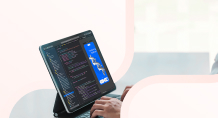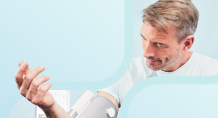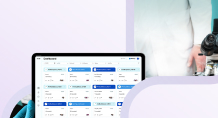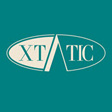In recent years, new technology has made a massive difference in patient outcomes and clinical performance. Clinical analytics is what has started a central shift towards data-driven insights.
In this article, we will discuss the impact of this advancement on healthcare practices. We will also take a look at how other technologies like integrative data management, predictive modeling, and artificial intelligence integrate with clinical analytics.
What is the purpose of clinical analytics
Clinical analytics has become the keystone in healthcare practices by offering a way to translate vast data landscapes into actionable analytical insights.
By carefully analyzing clinical data, healthcare facilities can achieve the following:
- Improve patient safety;
- Refine clinical outcomes;
- Enhance operational efficiency.
For example, a health system using a clinical analytics platform can guarantee a significant drop in hospital-acquired infections. This is done by monitoring hygiene compliance with data – an excellent example of the value of analytics in healthcare.
Healthcare providers can also tailor treatments and interventions with computer precision as a way to significantly improve patient outcomes. These technologies reduce costs and enhance the delivery of care by streamlining operational efficiencies.
This way healthcare systems and clinical practices become more sustainable. Furthermore, the integration of predictive analytics into clinical decision-making processes allows for the early identification and evaluation of health risks and conditions.
Software solutions for clinical analytics
So far, we have already mentioned that innovative software solutions are at the forefront of analyzing data. They offer healthcare analytics so that providers can achieve better patient outcomes. These platforms leverage advanced analytics and business intelligence, integrating machine learning algorithms to process and analyze clinical trial data effectively.
An example of such innovation is software that predicts patient deterioration hours before traditional symptoms appear, allowing for preemptive care interventions and significant improvement of patient outcomes.
Other examples of the latest software solutions for clinical analytics include:
- Predictive health insights: This approach uses artificial intelligence and machine learning to sift through large volumes of health data. This way we can identify patterns that predict health outcomes. Healthcare professionals can also make informed decisions quickly, potentially preventing adverse health events before they occur.
- Seamless data sharing: This feature ensures a more put-together patient care experience by making the exchange of information between different healthcare providers easier. It allows for more coordinated care that uses a single source of patient information.
- On-demand health analytics: Cloud-based platforms provide healthcare professionals with immediate access to analytics tools and patient data, regardless of their location. This flexibility supports real-time decision-making and ensures that patient care is both timely and informed.
- Visual health stories: Data visualization tools transform raw health data into easy-to-understand charts, graphs, and maps, making it simpler for healthcare providers to digest complex information. Clarity supports quicker, more accurate clinical decisions and helps communicate health trends and risks to patients more effectively.
- Custom care maps: Personalized health dashboards aggregate data from various sources to create a full health profile for each patient. These tailored profiles support customized treatment plans, closely aligning healthcare interventions with an individual’s specific health needs and preferences.
All in all, the ability to analyze data transforms information into knowledge, ultimately leading to more informed choices.
Advancements in data integration and management
Using special software for healthcare analytics makes it easier to handle lots of paperwork. By picking the right health metrics, this software helps organize everything better, making work smoother for staff and making patients happier.
Healthcare professionals should use tools that bring together different kinds of information, creating a safe and steady way to manage everything. This makes everyone involved so doctors, nurses, patients, and their families can feel more secure.
Also, this smart software can guess how many patients will come to the hospital each day and even each hour, thanks to its ability to learn and make smart on-the-go decisions.
One notable advancement and a useful example in data integration and management is the implementation of Electronic Health Records (EHR) systems. They consolidate patient information from multiple healthcare providers into a single, accessible record.
For instance, the integration of EHR software across different hospitals and clinics allows healthcare professionals to access a number of factors in real-time ensuring more efficient care. These factors include a patient’s complete medical history, laboratory results, and medication lists.
Discover how we can help outsource Healthcare projects efficiently Speak to an expert today, and see how our on-demand IT talent and augmented teams can efficiently deliver value at every step of your roadmap.

Predictive modeling in clinical decision support
Another fundamental technology that supports clinical decision-making is predictive analytics. They provide healthcare professionals with true value in the form of insights into future health system demands.
This ability to anticipate patient acquisition and outcomes allows for more precise and effective patient care strategies. This further optimizes the allocation of resources and improves patient safety and outcomes.
One specific example of changing healthcare for the better with the help of predictive modeling we are able to detect conditions like sepsis early.
This is one specific example of how healthcare is being changed for the better through:
- Real-time data analysis;
- Patient monitors;
- Laboratory results;
- Electronic health records.
It also assesses the risk of heart failure by analyzing patient data, allowing for personalized preventive measures. Such measures, for example, can be adjusting medications or recommending lifestyle changes, thereby preventing the condition from worsening.
Additionally, models predicting hospital readmissions help target follow-up care to reduce readmissions, benefiting patient outcomes and hospital performance. These models can pinpoint patients who might benefit from additional follow-up care, home health services, or other interventions designed to prevent readmission.
The advanced care targeting is accomplished by incorporating data like past hospitalizations, comorbidities, and medication adherence. This not only improves patient outcomes as already explained in the article, but also helps hospitals avoid financial penalties associated with high readmission rates.
Streamlining clinical workflow with real-time analytics
Real-time analytics offer change to clinical workflows by making sure hospitals optimize their operations for enhanced efficiency and patient care. Healthcare organizations can make informed decisions swiftly by providing immediate access to clinical insights. This process leads to significant improvements in clinical performance and patient experiences.
More specifically, by analyzing patient flow and wait times, the real-time analytics system identifies bottlenecks and predicts patient surges. This new method allows staff to adjust resources on-the-go. The process can lead to reduced wait times and a more efficient patient triage process.
Last but not least, the use of real-time data analytics has significantly improved patient satisfaction and operational efficiency within the emergency departments.
Enhancing patient outcomes through personalized analytics
Not only real-time, but also personalized analytics can give many benefits to patients. Personalized ones stand out by tailoring healthcare interventions to individual patient needs, thereby improving clinical outcomes.
This patient-centric approach leverages clinical data to fine-tune treatments and healthcare strategies, ensuring that each patient receives the most effective care tailored to their specific conditions and requirements.
For example, a leading oncology center has adopted personalized analytics by genetically sequencing patients’ tumors to create customized cancer treatment plans. This approach to precision medicine has markedly enhanced treatment efficacy and patient survival rates, matching therapies to the unique genetic profile of each tumor.
Compliance and security considerations in clinical analytics
As clinical analytics evolve, compliance and security remain paramount concerns for healthcare organizations. Ensuring the protection of sensitive patient data while adhering to regulatory standards is essential for maintaining trust and upholding the highest standards of patient care and data integrity.
There are a couple of factors that assure precisely that:
- Following privacy rules: Healthcare providers have to stick to important privacy laws that keep patient healthcare information safe. These laws help ensure that patient data is shared and used in the right way.
- Keeping data safe: Using technology like encryption is key to protecting patient information from people who shouldn’t see it. This keeps health details secure, whether they’re being stored or shared.
- Teaching staff about security: People who work with patient data need to learn regularly about keeping information safe. This training helps stop data leaks by making sure everyone knows how to handle patient details securely.
Taking advantage of these steps can lead to better standards of care and informational integrity by healthcare providers. It also solves some of the key challenges related to regulatory compliance.
Deliver a world-class Healthcare project–with high-skilled, seamlessly integrated IT talent Learn how from our consultants. We work with clients worldwide.
Analytical innovations in population health management
Clinical analytics are instrumental in advancing population health management by analyzing trends and patterns within health system data.
These insights support healthcare organizations in the process of:
- Developing targeted interventions to address public health concerns;
- Optimizing healthcare delivery;
- Improving overall community health outcomes.
Telehealth technologies have expanded everyone’s access to care and allow for remote monitoring and consultation. This further improves the quality of healthcare delivery to underserved populations.
Additionally, individuals and healthcare providers gain immediate insights into health behaviors and conditions through the use of wearable devices and mobile health apps for real-time health tracking. This facilitates early intervention and personalized health strategies.
Such advancements enhance the ability of healthcare systems to manage and improve the health outcomes of large populations efficiently.
Future trends in clinical analytics and software integration
When considering the future, the integration of clinical analytics and software promises to bring about even more advancements in the healthcare industry. The new trends lie in the further development of AI, machine learning, and predictive analytics. This process will drive healthcare towards more personalized, efficient, and data-driven practices.
The unification of different healthcare platforms promises seamless data exchange, ensuring a unified patient health record accessible by all authorized providers. The integration of natural language processing (NLP) technologies will automate the recording and analysis of unstructured clinical notes, accelerating diagnostic processes.
In conclusion, these innovations are set to transform the healthcare landscape, making care more predictive, personalized, and efficient. Healthcare providers will be able to deliver superior patient outcomes by fully utilizing these trends, demonstrating the ever-increasing value of clinical analytics in the digital age.


















